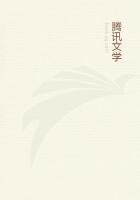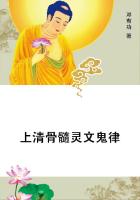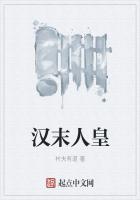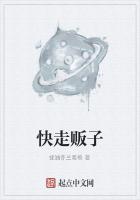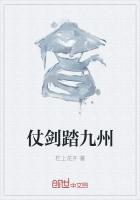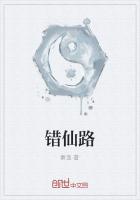The begonia is, or then was, a plant of such senatorial qualities as to make the simile, in intention, most flattering. Far from charming in its refinement, the begonia was remarkable for curious and showy foliage; it was conspicuous; it seemed to have no useful purpose; and it insisted on standing always in the most prominent positions. Adams would have greatly liked to be a begonia in Washington, for this was rather his ideal of the successful statesman, and he thought about it still more when the Westminster Review for October brought him his article on the Gold Conspiracy, which was also instantly pirated on a great scale. Piratical he was himself henceforth driven to be, and he asked only to be pirated, for he was sure not to be paid; but the honors of piracy resemble the colors of the begonia; they are showy but not useful. Here was a tour de force he had never dreamed himself equal to performing: two long, dry, quarterly, thirty or forty page articles, appearing in quick succession, and pirated for audiences running well into the hundred thousands; and not one person, man or woman, offering him so much as a congratulation, except to call him a begonia.
Had this been all, life might have gone on very happily as before, but the ways of America to a young person of literary and political tastes were such as the so-called evolution of civilized man had not before evolved.
No sooner had Adams made at Washington what he modestly hoped was a sufficient success, than his whole family set on him to drag him away. For the first time since 1861 his father interposed; his mother entreated; and his brother Charles argued and urged that he should come to Harvard College. Charles had views of further joint operations in a new field. He said that Henry had done at Washington all he could possibly do; that his position there wanted solidity; that he was, after all, an adventurer; that a few years in Cambridge would give him personal weight; that his chief function was not to be that of teacher, but that of editing the North American Review which was to be coupled with the professorship, and would lead to the daily press. In short, that he needed the university more than the university needed him.
Henry knew the university well enough to know that the department of history was controlled by one of the most astute and ideal administrators in the world -- Professor Gurney -- and that it was Gurney who had established the new professorship, and had cast his net over Adams to carry the double load of mediæval history and the Review . He could see no relation whatever between himself and a professorship. He sought education; he did not sell it. He knew no history; he knew only a few historians; his ignorance was mischievous because it was literary, accidental, indifferent. On the other hand he knew Gurney, and felt much influenced by his advice. One cannot take one's self quite seriously in such matters; it could not much affect the sum of solar energies whether one went on dancing with girls in Washington, or began talking to boys at Cambridge. The good people who thought it did matter had a sort of right to guide. One could not reject their advice; still less disregard their wishes.
The sum of the matter was that Henry went out to Cambridge and had a few words with President Eliot which seemed to him almost as American as the talk about diplomacy with his father ten years before. "But, Mr. President," urged Adams, "I know nothing about Mediæval History." With the courteous manner and bland smile so familiar for the next generation of Americans Mr. Eliot mildly but firmly replied, "If you will point out to me any one who knows more, Mr. Adams, I will appoint him." The answer was neither logical nor convincing, but Adams could not meet it without overstepping his privileges. He could not say that, under the circumstances, the appointment of any professor at all seemed to him unnecessary.
So, at twenty-four hours' notice, he broke his life in halves again in order to begin a new education, on lines he had not chosen, in subjects for which he cared less than nothing; in a place he did not love, and before a future which repelled. Thousands of men have to do the same thing, but his case was peculiar because he had no need to do it. He did it because his best and wisest friends urged it, and he never could make up his mind whether they were right or not. To him this kind of education was always false. For himself he had no doubts. He thought it a mistake; but his opinion did not prove that it was one, since, in all probability, whatever he did would be more or less a mistake. He had reached cross-roads of education which all led astray. What he could gain at Harvard College he did not know, but in any case it was nothing he wanted. What he lost at Washington he could partly see, but in any case it was not fortune. Grant's administration wrecked men by thousands, but profited few. Perhaps Mr. Fish was the solitary exception. One might search the whole list of Congress, Judiciary, and Executive during the twenty-five years 1870 to 1895, and find little but damaged reputation. The period was poor in purpose and barren in results.
Henry Adams, if not the rose, lived as near it as any politician, and knew, more or less, all the men in any way prominent at Washington, or knew all about them. Among them, in his opinion, the best equipped, the most active-minded, and most industrious was Abram Hewitt, who sat in Congress for a dozen years, between 1874 and 1886, sometimes leading the House and always wielding influence second to none. With nobody did Adams form closer or longer relations than with Mr. Hewitt, whom he regarded as the most useful public man in Washington; and he was the more struck by Hewitt's saying, at the end of his laborious career as legislator, that he left behind him no permanent result except the Act consolidating the Surveys.

